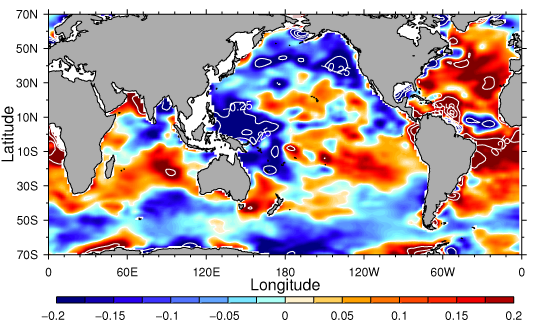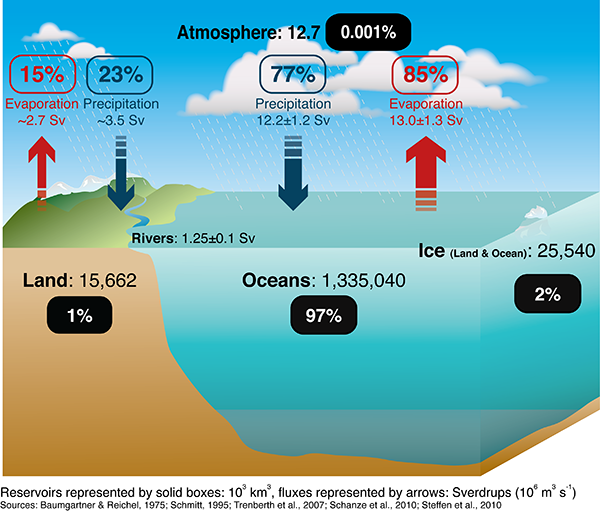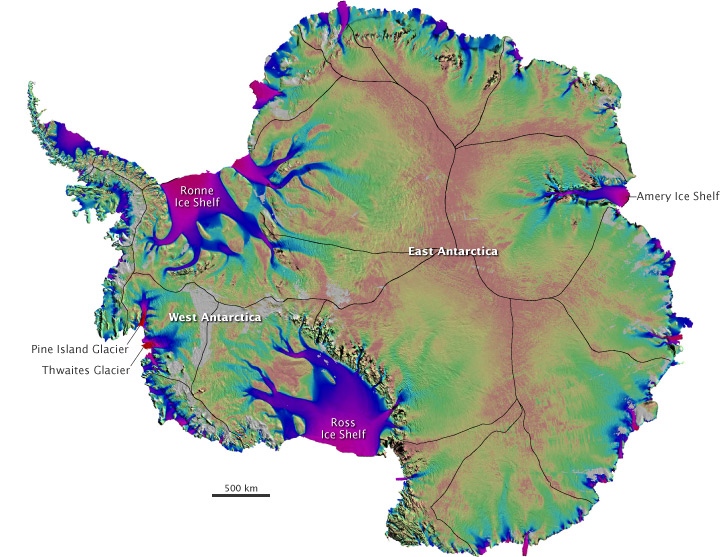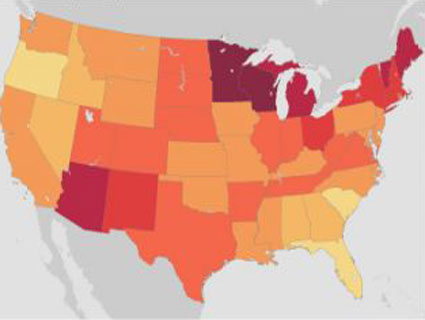Surface salinity changes from 1950 to 2000. Red shows regions becoming saltier, blue regions becoming fresher: P.J. Durack, et al. Science. 2012. DOI:10.1126/science.1212222
A paper in Science today finds rapidly changing ocean salinities as a result of a warming atmosphere have intensified the global water cycle (evaporation and precipitation) by an incredible 4 percent between 1950 and 2000. That’s twice the rate predicted by models.
These same models have long forecast that dry areas of Earth will become drier and wet areas wetter in a warming climate—an intensification of the water cycle driven mostly by the capacity of warmer air to hold and redistribute more moisture in the form of water vapor.
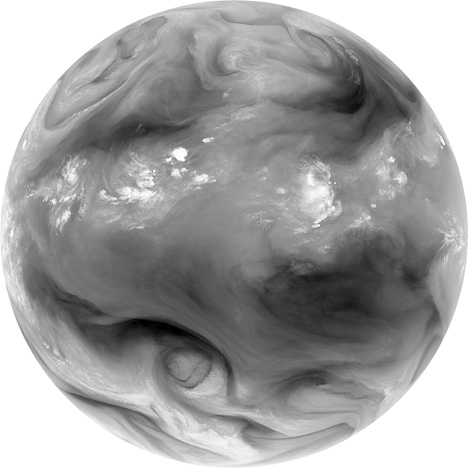 Satellite image shows the distribution of water vapor over Africa and the Atlantic Ocean on 2 Sept 2010: NASA
Satellite image shows the distribution of water vapor over Africa and the Atlantic Ocean on 2 Sept 2010: NASA
But the rate of intensification of the global water cycle is happening far faster than imagined: at about 8 percent per degree Celsius of ocean warming since 1950.
At this rate, the authors calculate:
- The global water cycle will intensify by a whopping 16 percent in a 2°C warmer world
- The global water cycle will intensify by a frightening 24 percent in a 3°C warmer world
A schematic representation of the global water cycle, with the key role of the ocean and surface rainfall and evaporation fluxes expressed: Durack et al. Science. 2012. DOI:10.1126/science.1212222
The changes will not be uniform across the globe, but trend toward increased drying of arid areas and increased flooding of wet areas.
And the resulting changes in freshwater availability are likely to be far more destabilizing to human societies and ecosystems than warming alone.
“Changes to the global water cycle and the corresponding redistribution of rainfall will affect food availability, stability, access, and utilization,” says lead author Paul Durack at the University of Tasmania and the Lawrence Livermore National Laboratory.
The paper:
- Paul J. Durack, Susan E. Wijffels and Richard J. Matear. Ocean Salinities Reveal Strong Global Water Cycle Intensification During 1950 to 2000. Science 2012. DOI:10.1126/science.1212222
